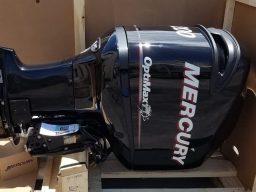
Routine Maintenance
801-712-2132
- Impeller on all inboard & outboard engines
- Outdrive/lower gear fluid change
- Oli change
- Tune-up



Services
Maintenance Schedule
Power or sail, maintenance for boats is critical for your safety, extracting maximum performance/lifespan from your investment, and getting the most enjoyment out of your time on the water. Skipping maintenance is extremely risky and costly in the long run.
Maintaining your boat properly is extremely important for several key reasons:
1. Safety
Proper maintenance helps ensure the boat is operating safely and reliably. Neglecting maintenance can lead to system failures or malfunctions that could put you and your passengers at risk on the water.
2. Performance
Regular maintenance according to the manufacturer's recommendations allows the boat's engine, electronics, and other systems to operate at peak performance levels. Lack of maintenance will degrade performance over time.
3. Longevity
Boats are a major investment. Keeping up with the maintenance schedule and taking good care of the craft will help maximize its usable lifespan and resale value down the road. Neglecting maintenance shortens a boat's life significantly.
4. Cost Savings
While maintenance does have ongoing costs for parts/labor, it pales in comparison to facing major repair bills or having to replace engines/components prematurely due to disregarding maintenance.
5. Resale Value
A well-maintained boat with complete service records will fetch a much higher resale price versus one that has been neglected and shows excessive wear.
6. Enjoyment
A boat running properly makes boating more enjoyable. Breakdowns, engine problems, system failures - all avoidable with good maintenance - can ruin an outing.
Impeller
Ut eu sem integer vitae
For a MerCruiser, the impeller should be inspected annually and changed if it shows signs of damage or excessive wear and tear. There is no set universal interval for impeller replacement, as it depends on factors like hours of operation, operating conditions, and the impeller material. However, many experts recommend changing the impeller at least every 2-3 seasons or 100 hours as a precautionary measure.
Here are some more specific guidelines on when to change the impeller on a MerCruiser outdrive:
- Inspect annually - At minimum, inspect the impeller condition once per season. Look for cracks, excessive cupping, torn/missing vanes, grooves, etc.
- 2-3 season replacement - As preventative maintenance, consider replacing every 2-3 boating seasons regardless of apparent condition.
- 100 hour replacement - Replace after approximately 100 hours of operation as a maximum interval.
- With engine overhaul - Change the impeller anytime you overhaul the engine.
- Harsh conditions - Replace more frequently if operating in debris-laden or warm waters that accelerate impeller deterioration.
An impeller in poor condition can cause cooling system flow issues and lead to serious engine overheating. So erring on the side of regular, proactive impeller replacements can prevent motor damage. Consult your MerCruiser manual, but every 2-3 seasons or 100 hours is a reasonable general guideline for this critical water pump component.
Oil Change
For most MerCruiser boat engines, it's typically recommended to change the engine oil every 100 hours of operation or at least once a year, whichever comes first. However, if you operate your boat in harsh conditions, such as saltwater environments or high-performance usage, more frequent oil changes may be necessary. Always consult your engine's manual for the manufacturer's specific recommendations tailored to your engine model. Regular oil changes help maintain engine performance and longevity by ensuring proper lubrication and removing contaminants..
Tune-Up
The frequency for tuning up a boat engine can vary depending on several factors, but generally, it's recommended to follow the manufacturer's maintenance schedule. Here are some typical guidelines for MerCruiser engine tune-ups:
1. Spark plug replacement: Most manufacturers recommend replacing spark plugs every 100 hours of operation or annually, whichever comes first.
2. Engine oil and filter change: Change the engine oil and oil filter every 100 hours of operation or annually, whichever comes first.
3. Fuel filter replacement: Replace the fuel filter(s) every 300 hours of operation or annually, whichever comes first.
4. Distributor cap and rotor replacement (if applicable): Replace the distributor cap and rotor every 300 hours of operation or every two years, whichever comes first.
5. Ignition system check: Have the ignition system (including spark plugs, wires, coils, and distributor) checked and serviced as necessary every 300 hours of operation or every two years, whichever comes first.
6. Cooling system flush: Flush the cooling system and replace the coolant every two years or as recommended by the manufacturer.
7. General tune-up: Perform a comprehensive tune-up, including adjustments, inspections, and replacements of wear items, every 300 hours of operation or every two years, whichever comes first.
8. Inspecting belts and hoses, and checking ignition timing and engine compression. Always refer to your engine's manual for specific maintenance schedules and recommendations tailored to your model.
It's important to note that these are general guidelines, and your specific model and operating conditions may require more or less frequent maintenance. Always refer to your owner's manual and consult with a qualified marine technician for the most accurate recommendations for your particular engine.
Gear Oil
For a MerCruiser it's generally recommended to change the gear oil at least once a year or every 100 hours of operation, whichever comes first. However, if you notice any signs of contamination, such as water intrusion or metal particles in the gear oil, you should change it immediately. Additionally, if you're storing the boat for an extended period, it's a good idea to change the gear oil before putting it into storage to prevent any moisture buildup. Always refer to the owner's manual for specific maintenance intervals and procedures for your particular model.
©Copyright. All rights reserved.
We need your consent to load the translations
We use a third-party service to translate the website content that may collect data about your activity. Please review the details in the privacy policy and accept the service to view the translations.
